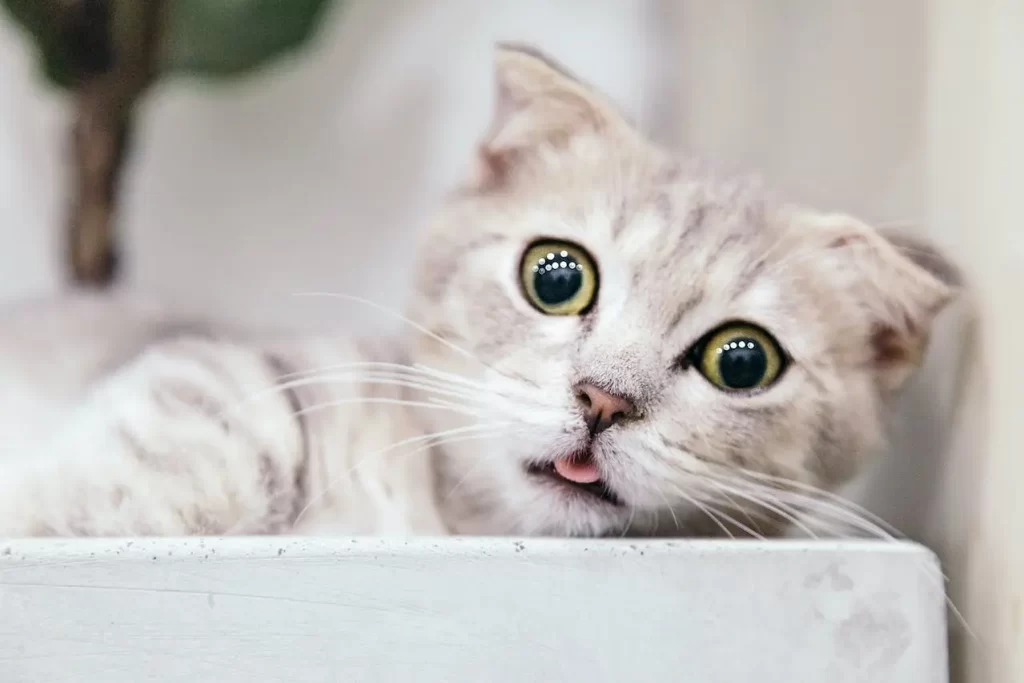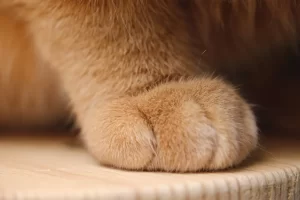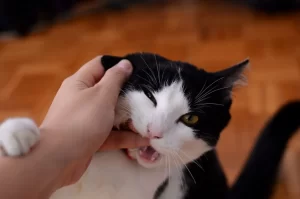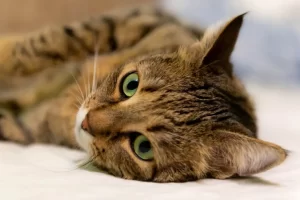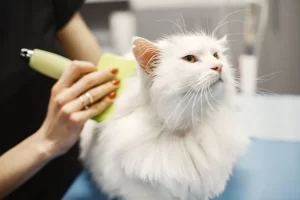Cat urinary blockage is a serious and potentially life-threatening condition that can be caused by various factors, including bladder stones, urinary tract infections, and urethral obstructions. It’s crucial to consult with a veterinarian if you suspect your cat is suffering from urinary blockage, as professional medical intervention is often necessary. However, there are some cat urinary blockage treatment at home tips that can help support your cat’s urinary health. In this article, we will explore 15 effective home remedies for cat urinary blockage and provide explanations for why they work.
Home Remedies for Cat Urinary Blockage
Hydration:
Proper hydration is essential to prevent urinary blockage in cats. Ensure that your cat has access to fresh water at all times. Dehydration can contribute to the formation of crystals and stones in the urinary tract.
Wet Food Diet:
Feeding your cat wet food is an effective way to increase their water intake, promoting healthy urination and reducing the risk of blockage. Wet food has a higher moisture content compared to dry kibble.
Cranberry Supplements:
Cranberry supplements can be given to cats to help prevent urinary tract infections and reduce the likelihood of blockage. They contain compounds that inhibit the attachment of bacteria to the urinary tract lining.
Apple Cider Vinegar:
Mix a small amount of apple cider vinegar with your cat’s food or water. It can help create a slightly acidic environment in the urinary tract, making it less favorable for crystal formation.
Pumpkin:
Adding a small amount of plain, canned pumpkin to your cat’s diet can help maintain proper digestion and reduce the risk of constipation, which may contribute to urinary blockage.
D-Mannose:
D-Mannose is a natural sugar that can help prevent urinary tract infections by interfering with the attachment of bacteria to the urinary tract walls. It can be mixed with water and given to your cat.
Marshmallow Root:
Marshmallow root can be made into a tea and cooled before being added to your cat’s water. It has soothing properties that may help alleviate inflammation and discomfort in the urinary tract.
Green Tea:
Green tea is rich in antioxidants and can be brewed and cooled. It may help reduce inflammation and provide additional hydration when added to your cat’s water.
Olive Oil:
A small amount of olive oil added to your cat’s food can promote healthy digestion and help prevent constipation, which can contribute to urinary blockage.
Herbal Supplements:
Certain herbal supplements, such as corn silk, nettle, and parsley, can be added to your cat’s food to support urinary health. These herbs may have diuretic properties and help maintain a healthy urinary tract.
Probiotics:
Probiotic supplements can help maintain a healthy gut flora, which in turn supports overall well-being, including the urinary system. Consult your veterinarian for appropriate probiotic options for your cat.
Frequent Litter Box Cleaning:
Ensure that your cat’s litter box is clean and inviting. A dirty litter box can discourage your cat from urinating regularly, increasing the risk of urinary blockage.
Stress Reduction:
Reducing stress in your cat’s environment can be essential in preventing urinary issues. Provide a calm and stable environment to minimize stressors that may contribute to urinary blockage.
Regular Exercise:
Encourage your cat to engage in physical activity to maintain a healthy weight and reduce the risk of obesity, which can be a contributing factor in urinary issues.
Observation and Monitoring:
Keep a close eye on your cat’s behavior and litter box habits. Any changes, such as increased or decreased urination, signs of discomfort, or blood in the urine, should be reported to a veterinarian promptly.
While these home remedies can help support your cat’s urinary health and reduce the risk of blockage, it’s crucial to remember that professional veterinary care is essential when dealing with a urinary blockage. If your cat exhibits symptoms of urinary issues, consult your veterinarian immediately. Additionally, always consult with your veterinarian before introducing any new supplements or dietary changes to your cat’s routine. By combining professional veterinary care with these home remedies and preventive measures, you can promote the overall well-being and urinary health of your feline friend.

